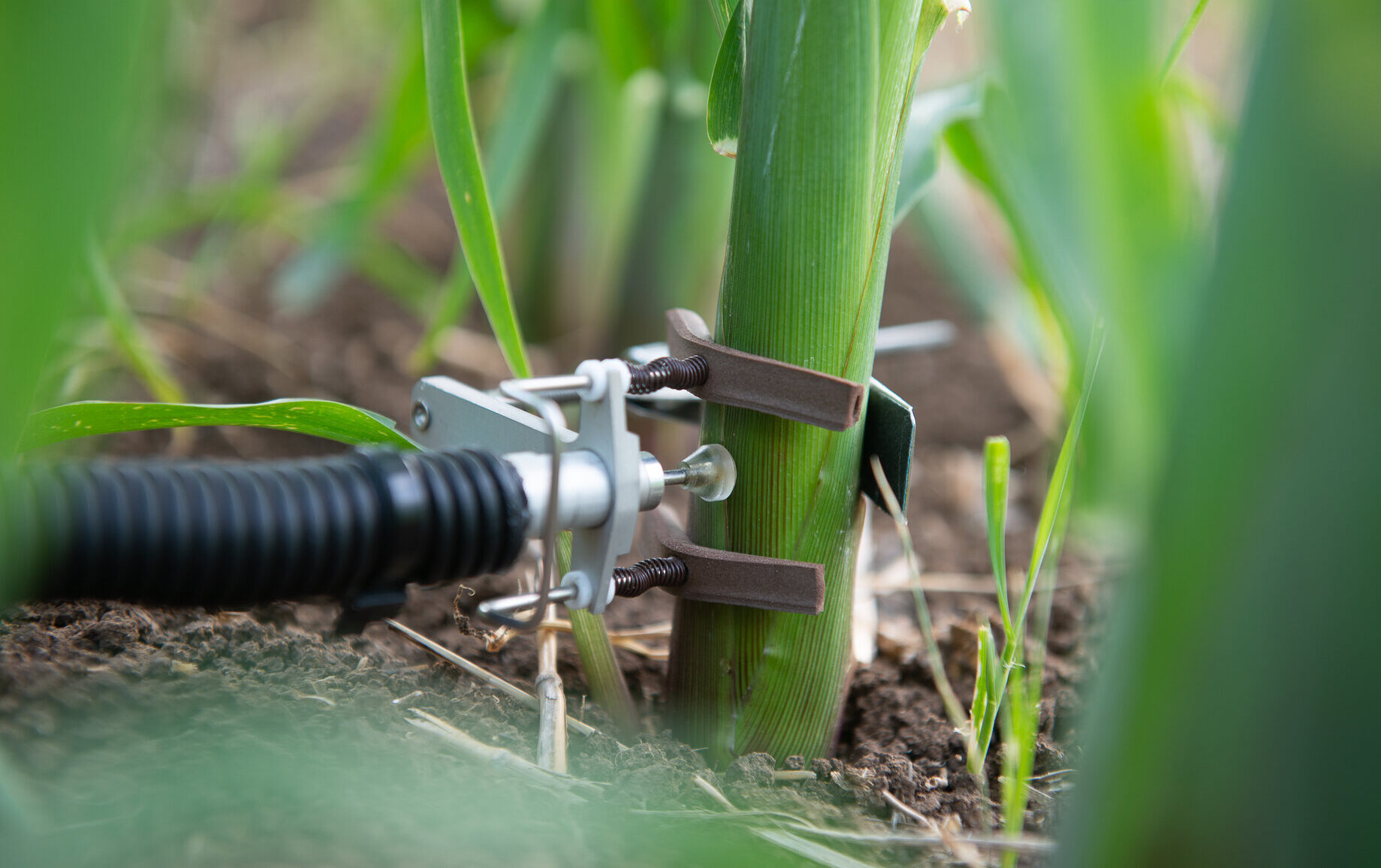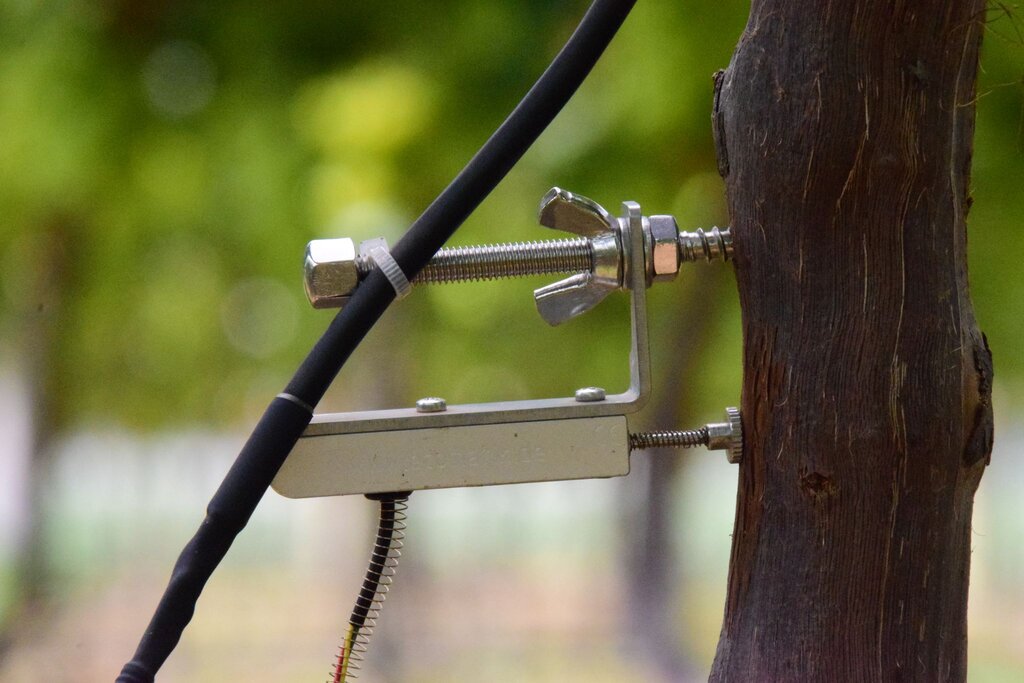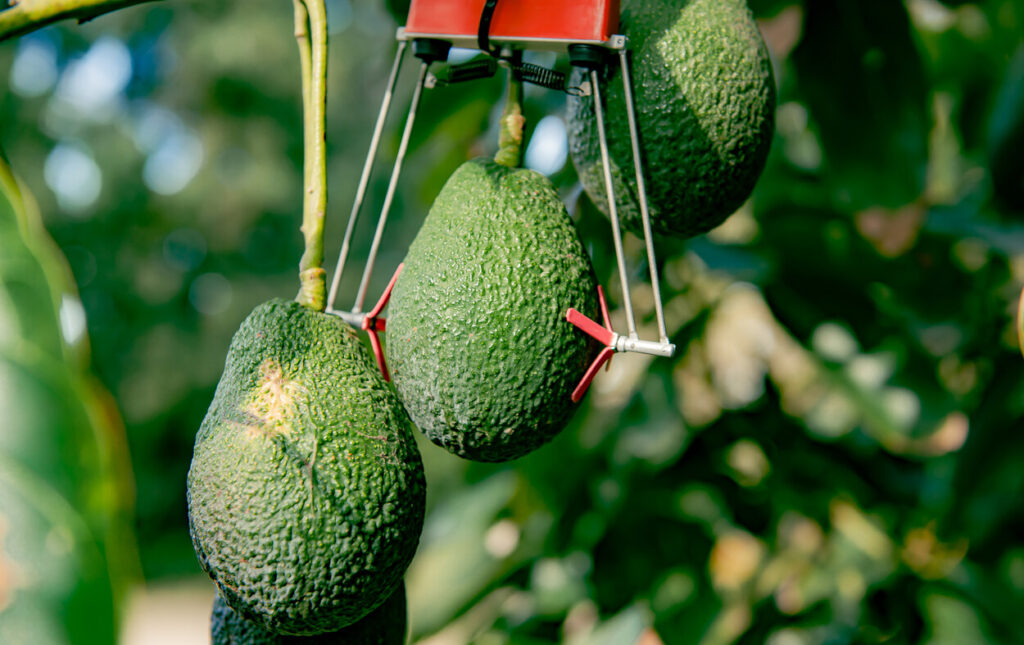A sensor that measures the “heartbeat” of a plant is being used by farmers around the world to optimize the growing process, most notably how much water it needs, at a time when weather patterns are shifting and becoming unpredictable due to climate change.
Almost all plants, big and small, rely on the process of photosynthesis (using light, carbon dioxide and water to produce oxygen and energy), and the correct conditions are crucial for its survival.
But for farmers, knowing how much water to give each plant can be an inexact science, with agriculturalists generally relying on experience and intuition rather than data to gauge the right amounts.
The technology created by Israeli startup SupPlant aims to end the uncertainty involved in irrigation, using the plant’s own chemical processes to inform how exactly much water to supply and when.
“It’s basically putting an Apple Watch on a [plant] and having it learn the metrics and learn the heartbeat,” SupPlant CEO Ori Ben Ner tells NoCamels.

The SupPlant sensor measures a plant’s tiny movements (micro variations) every 10 minutes and transmits that data to the cloud, where it is analyzed by the startup’s artificial intelligence platform. These tiny movements are created when a plant expands and contracts due to the water inside it being taken in from the ground and then evaporating during photosynthesis.
Ben Ner explains that the data is used to understand how a plant grows, which then allows the company to advise on optimum conditions, such as which fertilizer to use, and, most importantly, when to increase the amount of water given to each plant.
“In simple terms, we learn how plants behave, and according to that we initiate recommendations, mostly around how to irrigate,” he says.
The data can even help to build a model that can inform a farmer in advance what a certain plant’s needs will be and how to best take care of it even before it is planted.
“We can understand how a tree or fruit will behave or what size it will be a week or two weeks from now, and make decisions based on that,” he says.

The information on how best to encourage plant growth is even more vital than ever, according to Ben Ner, given the shifts in weather patterns experienced worldwide due to climate change.
Sign up for our free weekly newsletter
SubscribeBen Ner, who has embraced the family’s generations-long tradition of agriculture, says that Afula-based SupPlant, with its unique continuous monitoring of plants, can tell the farmers what is needed and when, regardless of seasonal norms.
“All of the know-how of any farmer you will ever meet is based on specific seasons and specific weather patterns, that [today] are behaving erratically or unstably, to say the least,” he explains.
The information in the cloud is accessed via a web-based dashboard made up of charts showing soil moisture, plant absorption and fruit growth.
The technology used in the sensors already existed and was available, he explains, but had not been used outside of university research. And, he says, it was the company founder who decided to take the existing technology and use it in the fields in dry regions of the world.

Today, nine years after the company was created, the sensors are in use in multiple countries in multiple regions of the world, including Australia, Israel, Mexico, Morocco and the UAE.
In Israel, SupPlant currently works with several wineries, while in Australia and Mexico, the sensors are in use by some of the biggest fruit companies.
And now, Ben Ner tells NoCamels, SupPlant is working on adapting their sensor for grain and cereal, which the United Nations’ Food and Agriculture Organization says are the most commonly produced crops worldwide.
“These are crops that are generally not irrigated but rain fed, that are really disturbed and disrupted very much because of droughts or uneven rain events,” he says.
“This is really the ability of humanity to grow food.”
Related posts

Harnessing Our Own Bodies For Side Effect-Free Weight Loss

Israeli Device Is New, Drug-Free Solution For Men Coping With ED





Facebook comments